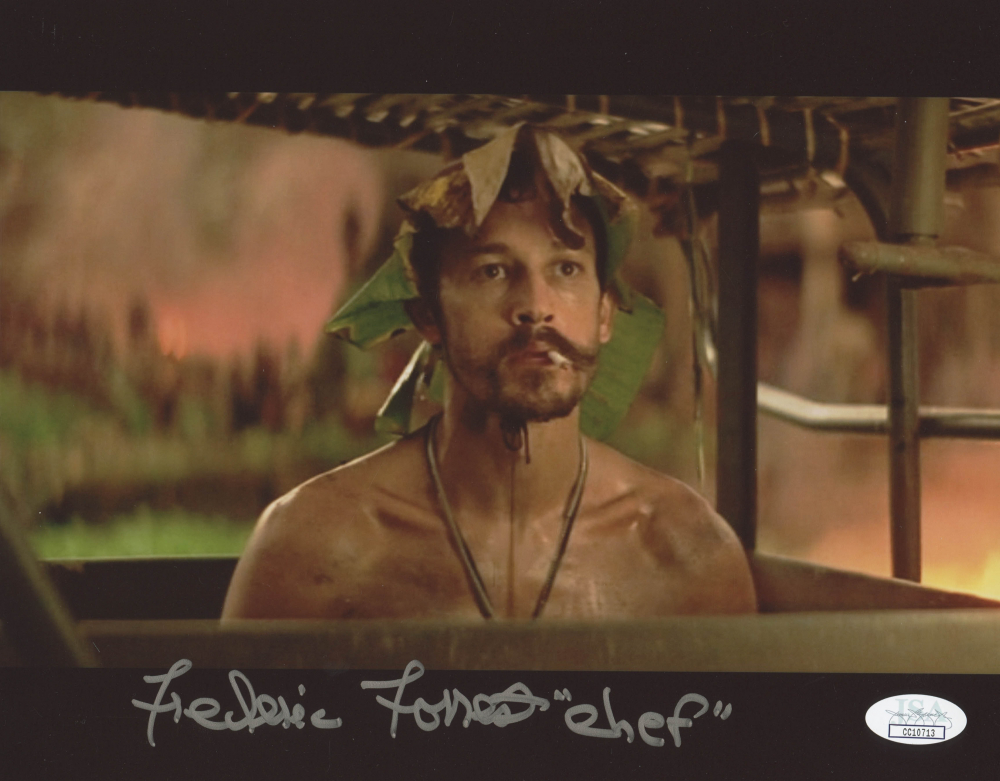
If you’re a fan of Francis Ford Coppola, you are familiar with Frederic Forrest.
If you’re an ardent fan of Francis Ford Coppola, you appreciate the rare gifts Frederic Forrest left us, forever.
An excellent overview of his life and career, courtesy of The Washington Post, here.
He’s ideally cast as the ambiguous bureaucrat in FC’s masterpiece The Conversation (my appreciation of that film, which I consider one of the best of the ’70s, here). He received an Oscar nomination for his role in The Rose, and was in dozens of films, ranging from memorable to unforgettable.
Of course, his finest work –and some of the best work anyone has done embodying a role– came in Coppola’s uncategorizable tour de force Apocalypse Now. The entire supporting cast is stellar, and while Laurence Fishburne and Sam Bottoms nail their wide-eyed kids (one from the east coast ghetto; the other fresh from the California surf), Forrest’s Chef is a much more complex, troubled character. One layer of tragedy he conveys is that he’s not “merely” another person whose life is wasted in a useless, unwinnable war sold on lies, it’s that we understand he could, and would, be doing something meaningful, in a kitchen, had he never been abruptly uprooted and forced thousands of miles from New Orleans. Forrest is remarkable throughout, but at least two of his scenes are indelible, both utilizing the “show don’t tell” strategy (which, admittedly, film can handle more readily than fiction) to illustrate the ways war’s insanity shatters more sensitive soldiers.
My poem “Chef’s Second Chance” (which appears in my collection The Blackened Blues) is (of course) a tribute to the character from Apocalypse Now (but also –and I’ll keep the editorializing brief– a commentary on veterans of America’s wars and how, for the last half century, they’ve been asked for much and provided very little. More, this poem represents, for me, what creative writing can do that even the best political non-fiction can’t; too many people are simply tuned out to opinion, or are set in their views so that even the most compelling insights can’t get past the carefully constructed shell; with a poem you have a chance to make points without preaching, inhabit other realities without presuming, and exhibit empathy that might, one prays, be contagious).
Chef’s Second Chance
“Never get out of the boat.”
–Chef, Apocalypse Now
It never sat well that Chef, who endured so much
in the service of a suicide mission, found himself
smuggled as he slept, then sacrificed like a lamb shank—
collateral damage to the apocalyptic designs of Col Kurtz,
exterminating men with the carelessness of cooks, stewing
marbled meat until it sluggishly turns the color of steel pots.
So let’s suppose, in a slightly less insane sort of world,
Chef gets a second chance. Stateside, run through the jungle
and back in his kitchen, taking orders even he can understand.
Ponytail in place, primed gently by grill grease and sweat,
a different cauldron altogether, head counts & tickets clocked
one plate at a time: straight wages for sensible work.
Except something is off: he can’t break away from this place.
Not the job, but that unconquered country and the things he carries.
It couldn’t break his will but it’s slowly sucking on his soul,
his brain boiling with all he saw and can never not see.
The more he scrubs the less he shines (Mistah Clean—he dead).
Darkness stalking his heart, murdered babies beneath his boots.
Too many jobs lost to count, he’s changed but nothing else did.
A survivor but nobody warned him about no shit like this:
His sins can’t be forgiven. Fortunate sons smirk when he stands
at the bus stop, nowhere to go, no way to pay, so of course
cops come when he breaks down inside that bank, not trying
to hurt anyone, there’s no gooks here and the gun’s not even loaded.
(Over there I could empty a clip and get myself a medal;
ain’t this a motherfuck! Five-to-ten for unlawful entry?)
So here you are. Came all this way and you finally get it.
Maybe you should have gotten your ass out of that boat.
The tiger was God trying to tell you a thing or two—too late,
you’ll never know now—or else on a mission of its own:
finding you, afraid but still on your feet, some instinct
sending it up river to put you, at last, out of your misery.
